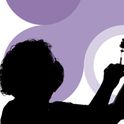I was in a restaurant in the market town of Yarm in August 2021 when I started to feel odd. Not just a bit odd, really odd—I was lightheaded and dizzy and struck with a sense of doom. I felt unbelievably hungry and was taunted by the plates of food being delivered to other tables. I didn’t just want their food; I needed their food.
At first, I thought I was having a panic attack, and felt an urge to be outside. As I sat down at a table on the pavement at the front of the restaurant, my vision began to fade. Everything went black. I woke up face-down on the tarmac.
Little did I know, as I came to at the feet of a group of teenage boys—none of whom, for the record, made any attempt to help me—that this incident would spark a new obsession that would reach its peak two and a half years later.
Anyone who has experienced hypoglycaemia will recognise the warning signs I missed—in the post-pandemic frenzy of being on holiday with friends, I made the error of eating 17 sherbet lemons and not much else after walking up a big hill. In the following week, I had all the necessary blood tests, which proved that my episode was not caused by diabetes or any other medical condition. I’m just one of those people who is prone to getting the shakes if they eat too much sugar on an empty stomach.
My body having a quirk like this was not a surprise to me. It has always been a bit weird. My friend describes my body as “90 per cent functional”—all my limbs and vital organs work, but the last 10 per cent of me is irritatingly broken. My skin has no barrier to infection and flares up with eczema in even low-level sunlight. I have bad asthma and an allergy to nuts and most fruits.
But, over the years, I have also accrued a number of more troubling diagnoses: phantom ones. In 2016, I convinced myself I had motor neurone disease; in 2022, pancreatitis. According to my OCD brain, I contract liver failure several times a year, after accidentally overdosing on paracetamol when I have a cold.
Health anxieties are often a feature of obsessive-compulsive disorder—a friend with OCD regularly diagnoses himself with cancer. And health anxiety more generally is common; some studies suggest 4 to 5 per cent of the population are afflicted. It is a particularly difficult form of anxiety to manage, especially when, like me, you also do genuinely suffer with several chronic conditions.
It can become almost impossible to trust yourself or your evaluation of your symptoms, which has led me to both wildly overreact and completely underreact to changes in bodily sensations—from demanding an MRI scan after getting a “wobbly” feeling in my legs while playing badminton, to failing to go to the doctor for a week after breaking my wrist because I assumed that my brain was making up the pain.
Trying to take my health seriously but not let my entire life be consumed by medical appointments is a relentless challenge. And new concerns often creep up on me.
Over the past few months, my worries about “going hypo again” became fanatical. Any feeling of dizziness, light-headedness or even just hunger turned into a spiral. What if the doctor read my results wrong and I’ve actually got type 2 diabetes? What if I faint again and fall onto this train track? Every minor fluctuation was evidence of diabetes or a pancreatic tumour.
When I returned home for Christmas, my father tentatively suggested that I had become obsessive. “Why don’t you see what happens if you stop compulsively eating brown bread?” he asked me. “You’re not taking me seriously!” I snapped back. But secretly I followed his advice.
When I stopped stuffing myself with complex carbohydrates, I didn’t faint. And—lo and behold—my sporadic feelings of dizziness began to ease. I was irritated that my father had been able to identify my dastardly OCD when I could not.
I shouldn’t beat myself up though: whatever the source of my symptoms, it’s important to remember that they are still completely real. They are evidence of anxiety, a different but equally debilitating illness to the one that I’m seeking treatment for.
A great philosopher put it best—and by “great philosopher” I mean Dumbledore in Harry Potter and the Deathly Hallows: “Of course it is happening inside your head, Harry, but why on earth should that mean that it is not real?”













